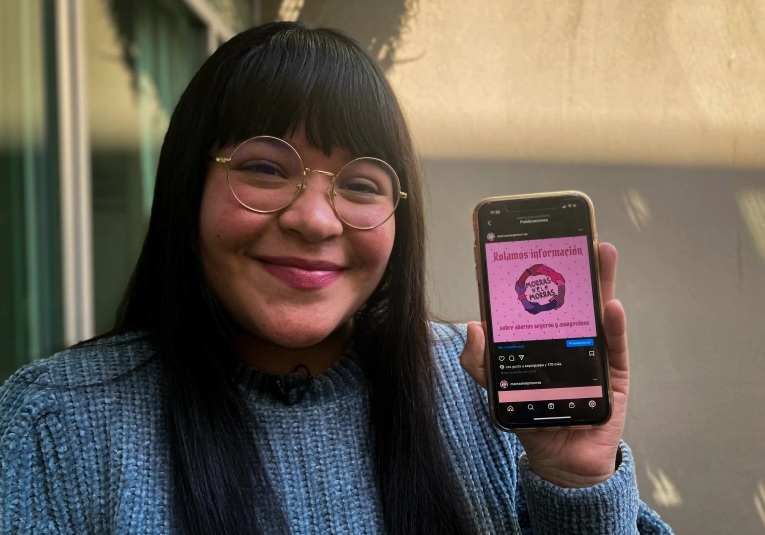Mexico City, Mexico – In the middle of the global pandemic crisis, Maria Muñoz, a 26 year-old journalist, found herself facing an unwanted pregnancy in Mexico City. Fearful of contracting COVID-19 at a hospital or clinic she decided to abort at home, with assistance coming via the popular messaging service, WhatsApp.
An increasing number of women in Mexico are turning to online support networks who advise them on how to use misoprostol, an over-the-counter ulcer medicine, to abort.
Maria found about this network through a friend, contacted them and was added to a WhatsApp group alongside psychologists, and what they call “abortion accompaniers”. They checked in with her frequently to see how she was feeling, sent her infographics on where to get misoprostol, how to take the pills, what she should eat beforehand and sent her reminders so she would keep to the proper administration schedule.
While Muñoz lives in Mexico City, one of two places in Mexico where abortion is legal until the 12th week of pregnancy, she still opted for the home-online support option. “I decided to do it at home because many times you go to the clinic and there are anti-right groups that attack you,” she told Al Jazeera. COVID-19, economic accessibility, and the ability to have her partner by her side also contributed to her decision.
Following her abortion she was added to a WhatsApp group of women across Mexico who had been through the process and wanted to share their experiences. “It really affected me to listen to women who aborted where it was not legal and they had to suffer from double fear – the fear of aborting and also the fear of being incarcerated for abortion when they are in such a vulnerable moment,” added Muñoz.
In 30 Mexican states, women’s options to abort are very limited. The legal termination of pregnancy is only permitted under certain circumstances including rape or health factors that put the woman’s life at risk. Abortion was legalised in Oaxaca in 2019 yet very few clinics provide it as a service, making women’s access there basically non-existent.
The reproductive justice collective Morras Help Morras, which translates to Girls Help Girls, has assisted women across Mexico to terminate their pregnancies. The group receives on average nine to 10 requests a day from women interested in terminating their unwanted pregnancy at home, said Sofia, the organization’s co-director, who did not want to share her last name as she could face legal repercussions. They have tens of thousands of followers on social media networks helping them reach women all over the country.
CLICK HERE FOR FULL ARTICLE By Andalusia K Soloff ON AL JAZEERA




1 comment
I can recommend an application that will help in this matter for both men and women Tik Tok 18